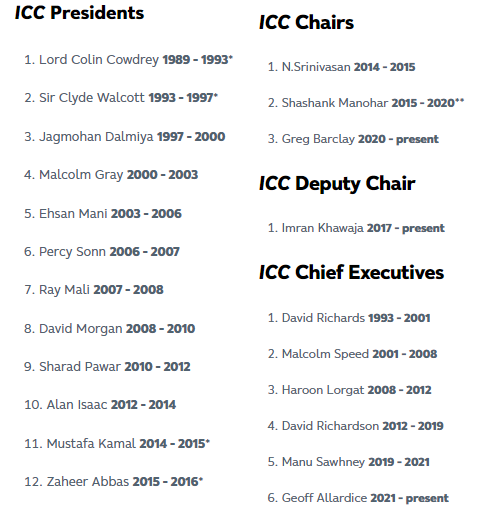Jay Shah Shapes Cricket's Future as ICC Chairman
Jay Shah's leadership as ICC Chairman promises to elevate cricket's global presence, enhance women's participation, and navigate financial challenges ahead.
Key Points
- Jay Shah's appointment as ICC Chairman marks a new era for cricket, enhancing India's influence globally.
- His leadership focuses on promoting cricket's inclusion in the 2028 Olympics and supporting women's cricket.
- Shah aims to balance the financial dynamics of international cricket while preserving traditional formats like Test matches.
The world of cricket stands at a significant crossroads with the recent appointment of Jay Shah as the new Chairman of the International Cricket Council (ICC). This transition marks a pivotal moment for the sport, as Shah—an influential figure in Indian cricket—takes the helm during a transformative period. His ascension not only amplifies India's influence in global cricket but also brings fresh aspirations for the game's future.
A New Era Begins
Jay Shah, the 35-year-old Secretary of the
(BCCI), is set to take on the ICC leadership role starting December 1, 2024. By doing so, he becomes the youngest person to hold this prestigious position. With his experience at the BCCI and the Asian Cricket Council, Shah is primed to steer cricket into a new phase. This appointment is a testament to the growing power dynamics in global cricket, where India's financial clout cannot be overlooked.

Implications of the Olympic Inclusion
One of Shah's most notable comments revolves around cricket's inclusion in the
. He stated, "The inclusion of our sport in the Olympics... represents a significant inflection point for the growth of cricket". This event serves as an opportunity to globalize the sport further and attract new audiences, potentially leading to increased investment and popularity.
However, this brings challenges too. Crafting a qualifying format and determining the number of competing teams are significant hurdles that need addressing. Shah has the potential to navigate these complexities adeptly given his administrative background and understanding of cricket's intricacies.
Navigating Financial Dynamics
The financial landscape of cricket is also shifting under Shah's guidance. The ICC's current broadcast deal, estimated at around $3 billion, is a lifeline for many member boards. Still, with major stakeholders like Disney Star reportedly seeking a reduction in this deal, Shah’s administration must ensure that all nations benefit equitably. Maintaining a balance between the "Big Three"—India, England, and Australia—and the remaining cricketing nations will be crucial for a harmonious future.
Developing Women's Cricket
Jay Shah’s tenure at the BCCI has witnessed notable strides in women's cricket, particularly with the Women's Premier League (WPL). By continuously advocating for equal pay and stronger support for female cricketers, Shah's commitment to gender equality in sports is commendable. This initiative not only fosters talent but also inspires a generation of female athletes, encouraging broad participation in all formats of the game.
Shah is expected to carry this commitment to the ICC, ensuring that women's cricket receives the attention and resources it deserves globally.
Protecting Traditional Formats
As franchise leagues proliferate and threaten the sanctity of international cricket, Shah's leadership will be tested to preserve traditional formats, especially Test cricket. He has expressed support for Test matches, proposing enhanced financial incentives for players. Finding a way to coexist with the lucrative franchise leagues while ensuring the integrity of international cricket is another front where Shah’s administrative skills will be put to the test.
Addressing Challenges Head-On
The route ahead will not be without obstacles. From geopolitical tensions affecting series organization to the ongoing debate about the balance between club and country commitments, Shah's approach will need to be comprehensive and inclusive. His experience navigating through complexities at the BCCI will undoubtedly come in handy as he faces similar challenges on a global scale.
Ultimately, the future of cricket hangs in a delicate balance. Jay Shah's leadership style may harmonize the interests of various stakeholders while pushing the sport toward new horizons.
The Commonwealth Games and the IPL have set a precedent for cricket’s capabilities to engage global audiences. With Jay Shah at the ICC's helm, there's a palpable optimism that cricket's evolution will continue, making it more inclusive, popular, and financially sound.
As we look ahead, Shah's journey represents more than just a change in leadership; it embodies a transformative shift that could redefine cricket's landscape for years to come. In this new chapter, we are not only witnessing a new figure at the top but also the possibility of a more cohesive and progressive cricketing world.


